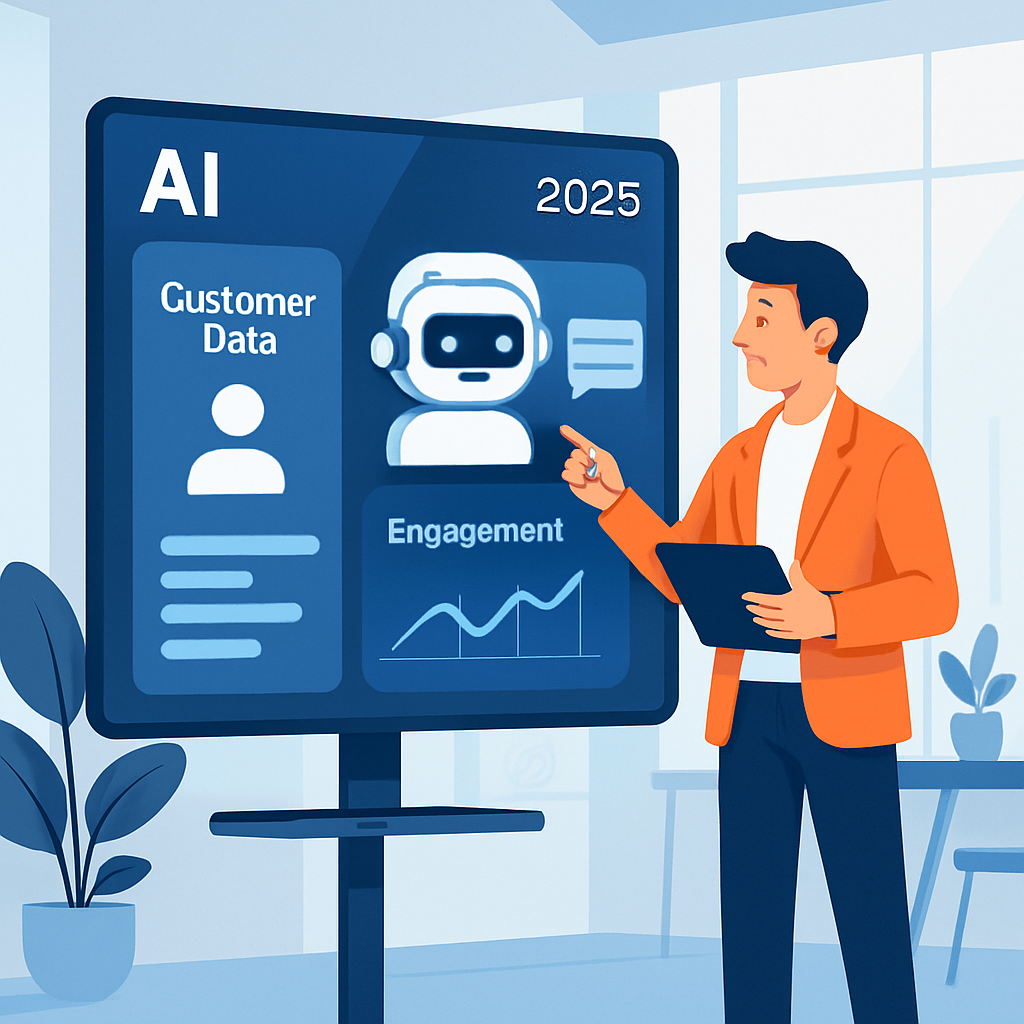
Unlocking Growth: Top AI Tools Empowering Small Business Data Analysis in 2024
Introduction: The New Era of Data-Driven Small Business Growth
In 2024, artificial intelligence (AI) tools are no longer the exclusive domain of large enterprises. Small businesses worldwide are harnessing AI-powered data analysis solutions to uncover insights, streamline operations, and make informed decisions that fuel growth. With ever-increasing amounts of data generated daily, the ability to turn raw numbers into clear strategies is vital.
Why AI Tools Are a Game-Changer for Small Business Data Analysis
Traditionally, data analysis required extensive expertise and resources, often out of reach for small companies. Today, intuitive AI platforms democratize access to sophisticated analytics by automating complex tasks such as data cleansing, pattern recognition, and predictive modeling. These tools accelerate decision-making and provide competitive advantages.
Key Benefits Include:
- Efficiency: AI rapidly processes large datasets far quicker than manual methods.
- Accuracy: Reduction of human error through standardized, algorithm-driven analysis.
- Personalization: Tailored insights relevant to industry, market segment, and specific business goals.
- Predictive Power: Anticipation of trends and customer behaviors enables proactive strategies.
Top AI Tools for Small Business Data Analysis in 2024
Below are standout AI platforms and tools making waves this year, chosen for accessibility, features, and impact on small business data handling.
1. MonkeyLearn – Easy Text and Sentiment Analysis
Ideal for businesses needing to analyze customer feedback, reviews, and social media, MonkeyLearn uses natural language processing (NLP) to extract sentiment and categorize texts automatically. Small e-commerce and service providers benefit by understanding client voice and adjusting offerings promptly.
2. Tableau augmented with Einstein Discovery
Tableau’s visual analytics combined with Salesforce’s Einstein Discovery AI provides small businesses a powerful tool for spotting trends and predictive insights within colorful, easy-to-interpret dashboards. This synergy helps identify growth opportunities or operational bottlenecks without deep data science knowledge.
3. Zoho Analytics – Comprehensive, Integrative BI Tool
Zoho Analytics blends AI-based data prep, analysis, and storytelling into one platform. Its drag-and-drop interface plus AI assistant lets small owners query data using natural language, making insights accessible for those without technical backgrounds.
4. Google Cloud AutoML Tables
Google's AutoML Tables leverages automated machine learning to build custom predictive models from tabular data without requiring code. Small retailers and SaaS startups can forecast sales, churn, or demand patterns elegantly and accurately.
5. RapidMiner – End-to-End AI Workflow Platform
For the more adventurous small business analysts, RapidMiner offers an open early-entry point to complex data science with AI-powered automation. It supports everything from data ingestion to model deployment, enabling creative solutions tailored to unique business questions.
Practical Use Cases: How Small Businesses Are Unlocking Growth
Inventory Optimization: A boutique online retailer integrates AI to analyze purchasing trends and streamline stock levels, reducing excess and preventing shortages.
Customer Segmentation: A wellness startup uses AI clustering features within Zoho Analytics to tailor marketing campaigns for distinct user groups, improving engagement substantially.
Churn Prediction: A subscription-based app leverages Google AutoML tables to build predictive models determining which users are likely to cancel, enabling timely retention offers.
Sentiment Analysis: A café chain mines online feedback using MonkeyLearn to identify pain points and popular menu items, guiding service and product innovation.
Best Practices for Implementing AI Tools in Small Businesses
- Start with Clear Questions: Identify specific challenges or opportunities where data insights can add value.
- Focus on Quality Data: Clean, relevant data sets heighten AI accuracy and output usefulness.
- Leverage User-Friendly Platforms: Choose tools with accessible interfaces and solid customer support to reduce learning curves.
- Iterate Regularly: Use insights as ongoing feedback loops to refine strategies and AI models.
- Consider Privacy: Ensure compliance with data regulations and build customer trust around data handling.
Looking Ahead: The Future of AI and Small Business Data Analysis
AI continues to evolve rapidly, with future tools poised to offer even greater personalization, explainability, and automation. Integration with IoT devices, voice recognition, and advanced forecasting will deepen insights. Small businesses that embrace these AI advancements early will be better equipped to navigate complexity and seize growth in 2025 and beyond.
Conclusion: From Data to Decisions—AI as a Catalyst for Small Business Success
Unlocking growth through AI-powered data analysis is no longer a distant dream for small businesses. The latest AI tools provide accessible, intelligent, and actionable insights that enable smart decision-making and competitive agility. By carefully selecting appropriate platforms and embedding AI into their data strategy, small business leaders can transform raw data into a strategic asset driving sustainable success.







